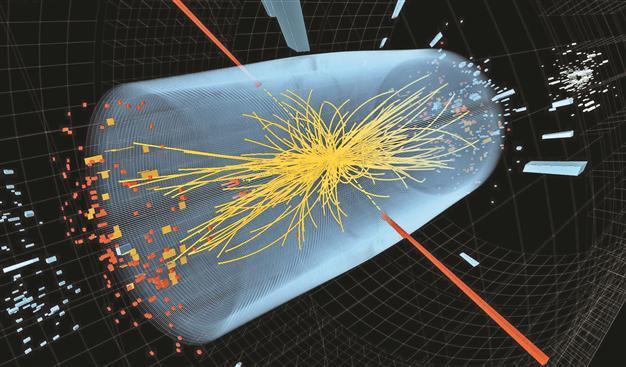God particle’s discovery poses Nobel dilemma
PARIS - Agence France-Presse

Some Nobel-watchers are cautious, given that the new particle has not yet been officially sealed as the Higgs. There is a remote possibility that it is not the Higgs. AFP photo
On July 4, scientists announced they had discovered a new particle that may be the fabled Higgs boson, an exploit that would rank as the greatest achievement in physics in more than half a century. But they also created a headache for the jury that will decide Tuesday’s Nobel Prize for Physics.
Historic though it is, does the announcement deserve the award? And if so, who should get it? The breakthrough at the European Organisation for Nuclear Research (CERN) touches on the agonizing quest to find the “God particle,” so called for being everywhere and elusive at the same time.
Named after British physicist Peter Higgs, the boson is a key to our concept of matter, as it could explain why particles have mass. Without the Higgs, the Universe as we know it would simply not exist, according to the theory. “This is the physics version of the discovery of DNA,” says Peter Knight, president of Britain’s Institute of Physics. But whether the July 4 fireworks will unlock the great prize is unclear.
Some Nobel-watchers are cautious, given that the new particle has not yet been officially sealed as the Higgs. Scientists are almost certain it is the coveted beast, for they found it at a range of mass that fits with their calculations.
Yet they still need to confirm this, which means further work to see how it behaves and reacts with other particles. Indeed, there is a remote possibility that the new particle is not the Higgs, although this would be an even more ground shaking announcement.
As Higgs himself readily admits, vital contributions to the theoretical groundwork were made by others.
In fact, six physicists, each building on the work of others, published a flurry of papers on aspects of the theory within four months of each other back in 1964.
So the question is whether the jury considers July’s announcement to be sufficient even if the boson’s Higgsishness remains unconfirmed. Then it must decide whether theoreticians or experimentalists, or both, should get the glory.
